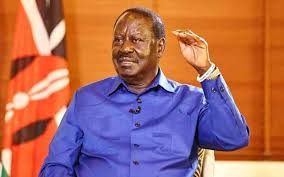The European Central Bank (ECB) has announced plans for a €1.1 trillion euro (Sh113.8 trillion) stimulus package in a last-ditch attempt to breath life into the European economy.
At its monthly governing council last week Thursday, the eurozone’s bank agreed to start buying up government bonds from March in an unprecedented quantitative easing (QE) programme. The programme, which will cause a rush of money to enter the market, will run until September 2016 at the earliest.
Speaking at a press conference following the governing council meeting, ECB President Mario Draghi said that the bond-buying programme would remain in place “until we see a sustained adjustment in the path of inflation, which is consistent with our aim of achieving inflation rates below, but close to, 2 per cent”.
Prices across the currency union fell by 0.2 per cent in December, the first time the eurozone recorded negative inflation since 2009. Although the fall was largely attributed to falling oil prices, it has heightened concerns about a prolonged period of deflation in the economic bloc.
The move does not come as a surprise after Mr Draghi hinted at the start of the year that the ECB was working on “concrete” plans to begin a bond-buying programme.
The eurozone economy grew by a meagre 0.8 per cent last year, and is projected to perform little better this year, with consumer demand remaining stubbornly low and unemployment, particularly in southern Europe, stubbornly high.
Boost inflation
The Frankfurt-based bank hopes to boost inflation and drive down the value of the euro against other major currencies in a bid to make the bloc’s exports more attractive.
QE drives inflation, or a rise in the cost of products, as the money available increases while the number of goods available to purchase remains fixed.
The news cheered investors, who had banked on the ECB launching a QE programme, with the euro falling to an 11-year low against the dollar in the hours following the announcement.
The Kenya shilling also strengthened against the euro, reaching its strongest rate since 2012.
QE involves central banks buying up government and private bonds to inject more money into the system — a path trod with some success in recent years by the US Federal Reserve and the Bank of England in response to the 2007-8 financial crisis. Both the US and UK were able to lower their borrowing costs as a result of their respective QE programmes.
However, it is regarded as a sign of desperation by central banks, while critics also question how effective the programme will be, pointing out that the ECB has already pumped over €1 trillion euro (Sh103.4 trillion) at low interest rates into commercial banks in a so-far-fruitless bid to encourage them to increase private sector lending.
Meanwhile, interest rates on eurozone government bonds are, at 1.5 per cent on average, already at record lows and are unlikely to be forced much lower by a further injection of cash.
Another issue is that the increased liquidity tends to see financial companies direct the funds towards emerging economies, where there are chances of getting a higher rate of return on investment. This influx of funds could increase inflation in local economies and devaluation of currencies.
Stay informed. Subscribe to our newsletter
On his part, hedge fund billionaire George Soros, who made $1 billion (Sh91.6 billion at current exchange rates) betting on the devaluation of the pound in 1992, told a debate at the World Economic Forum in Davos last week that the QE programme would “increase inequality between rich and poor, both in regards of the countries and people”.
Money-printing exercise
Soros added that the money-printing exercise could also dissuade countries like France and Italy from making painful but necessary structural reforms to make their economies more competitive.
“The QE announcement is historic but it was also the ECB’s last trump,” said ING chief economist Carsten Brzeski.
Gregory Claeys, a research fellow with the Bruegel think tank in Brussels, told Business Beat that Draghi’s announcement was “a welcome surprise” and “more than the markets were expecting”.
He said the announcement would likely prompt a swift depreciation in the euro’s value.
Praising the ECB’s boldness, he commented that “there’s no point not using an instrument just so you can say you have another trick up your sleeve”.
Although the programme will not be welcomed warmly by Germany, whose two members of the ECB’s governing council had indicated their opposition to QE, Draghi offered a major concession: only 20 per cent of the new bond purchases will be subject to “risk sharing”, meaning that national central banks will bear most of the risk of their governments defaulting on their debts. A large section of Germans are wary that they could be made liable for the debts of other eurozone countries, and that bond buying could lead to inflation.
Meanwhile, the ECB kept its headline interest rate unchanged at 0.05 per cent.
[email protected]
 The Standard Group Plc is a
multi-media organization with investments in media platforms spanning newspaper
print operations, television, radio broadcasting, digital and online services. The
Standard Group is recognized as a leading multi-media house in Kenya with a key
influence in matters of national and international interest.
The Standard Group Plc is a
multi-media organization with investments in media platforms spanning newspaper
print operations, television, radio broadcasting, digital and online services. The
Standard Group is recognized as a leading multi-media house in Kenya with a key
influence in matters of national and international interest.
 The Standard Group Plc is a
multi-media organization with investments in media platforms spanning newspaper
print operations, television, radio broadcasting, digital and online services. The
Standard Group is recognized as a leading multi-media house in Kenya with a key
influence in matters of national and international interest.
The Standard Group Plc is a
multi-media organization with investments in media platforms spanning newspaper
print operations, television, radio broadcasting, digital and online services. The
Standard Group is recognized as a leading multi-media house in Kenya with a key
influence in matters of national and international interest.







